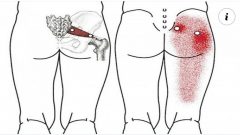Millions Could Qualify for Weight-Loss Surgery

The National Institute for Health and Care Excellence (NICE), says new evidence shows the procedure pays for itself in two to three years and doctors should no longer see it as a last resort.Anybody with a body mass index of 30 or more who has recently been diagnosed with type 2 diabetes, and has tried a compulsory weight-loss programme, would be eligible under the new guidance. But the rigorous assessment and a reluctance to undergo major surgery is likely to result in just 5,000 more people a year having the operation, rising to 15,000 a year in future.

Currently 6,500 people a year have the £6,000 procedure on the NHS. NICE wants to provide more Type 2 diabetics with a free gastric band or bypass operation. Critics slammed the proposals offer operations costing up to £6,000 each when the NHS faces a £30billion deficit. But other health experts saying that it was a justifiable damage limitation exercise in the war against obesity. The majority of patients undergoing obesity operations have gastric bypasses, where the digestive system is rerouted past most of the stomach.
These cost the NHS £5,999. Gastric band surgery, which places a device around the top of the stomach to slow the consumption of food, is billed at £2,588. NICE will now extend that eligibility to those who have Type 2 diabetes and a BMI of over 30.They will also recommend that the plus-35 BMI patients with health conditions no longer need to complete the fitness regime in order to get the surgery.

This will double the number of people eligible for free ops. If every one of those two million people had surgery, it could cost the taxpayer £12billion. NICE argues that the NHS could reap huge financial benefits in the long-term as 65% of post-op patients would no longer need any Type 2 diabetes medication within two years and would avoid serious conditions such as heart failure, amputations and blindness. It will be up to individual clinical commissioning groups, which run local NHS budgets, to decide whether the surgery should be funded in their areas.
Consultants McKinsey warned that it now has the second biggest economic impact behind smoking.
Professor Mark Baker, NICE Centre for Clinical Practice director, said, “As a nation we are getting heavier. The number of people classified as obese has doubled over the last 20 years and continues to rise. Obesity is directly linked to Type 2 diabetes, fatty liver disease, cancer, high blood pressure, heart disease, stroke, arthritis and it affects people’s mental health.”






Facebook Comments